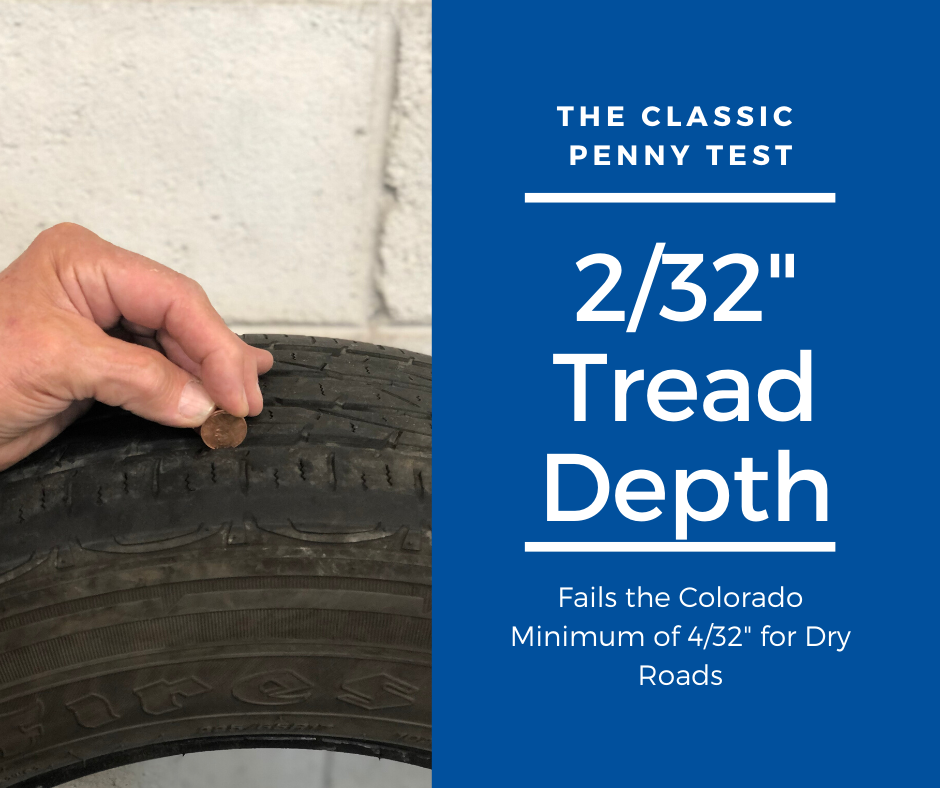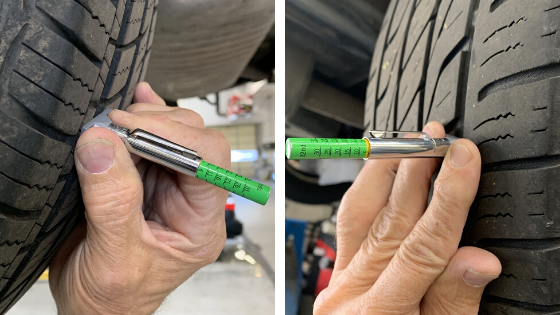This might be repetitive but we just want to make sure everyone is well informed about the Colorado Traction Law.
It's important to be aware of where traction laws are active as you're traveling, as this can vary from road to road. Each year the state's traction law goes into effect on a 126-mile stretch of I-70 from September 1 to May 31st. The nine-month mandatory traction law extends from Dotsero to Morrison, requiring all vehicles to carry proper winter traction throughout the season, regardless of weather. All other roads and highways are subject to traction laws during severe wintry weather.
In Colorado, it remains that the minimum tread requirement for dry roads is 4/32" (1/8"). Interestingly 1/8" doesn't even meet the classic "penny test" (which detects when your tread is less than 2/32"). 
1) Four-wheel-drive vehicles: may have standard (all-season) or snow tires with a minimum tread depth of 3/16".
2) Two-wheel-drive vehicles: must have specialized tires for snow with a minimum tread depth of 3/16" (or have standard tires, but carry chains or auto socks that must be installed during snowy or icy conditions).
Fines for driving with inadequate tires when the traction law is in effect begin at $130. If a motorist blocks the roadway while driving with inadequate tires, fines begin at $650.
Chains are hard to install, especially in a snowstorm. Tire socks are easier but have limitations; in snow, you can only drive 30mph or less, and running on dry pavement will wear them out fast. The price range for a set of auto socks is $70-$140. The best way to measure tire tread depth is with a tire tread depth gauge. These cost between $3 and $8.

Now that the Traction Law requirement is 3/16", we need a system other than the penny or quarter test (measuring 1/16" and 2/16" respectively), so I am proposing the Addison Eagle test. It goes like this, using a quarter with the eagle on the obverse side, insert the quarter into the tread with the eagle's head pointing to the center of the tire. If the eagle's head is fully visible above the tread, the depth is less than 3/16". If any portion of the eagle's head is covered by the tread then the depth is greater than 3/16".
.png?width=940&name=The%20Addison%20Eagle%20Test%20-%20Addison%20Auto%20(2).png)
Since winter tires are made of a soft compound, they wear more quickly on dry roads and in warmer weather. When it comes to snow or ice on the ground, all-season tires simply don't compare to winter tires, which can stop more quickly. It is great to invest in winter tires, but make sure to take them off when the winter season is over.
Enjoy the season and stay safe!
- Jim Addison and your friends at Addison Auto Repair and Body Shop


